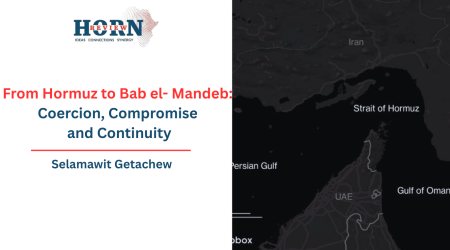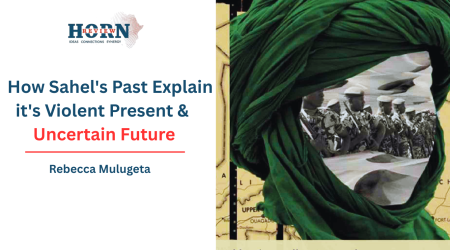
18
Aug
Drug Economies and Civil Conflict: Sudan’s Captagon Market and Regional Implications
While global attention has been focused on the collapse of Assad’s drug empire in Syria and its contraction throughout the Levant, the emergence of a new locus in Sudan has received comparatively little notice. An amphetamine-type stimulant, commonly referred to as Captagon, which enhances concentration, prolongs physical endurance, and induces euphoria, is increasingly consumed and trafficked within Sudan. According to the News Lines Institute (NLI), Syria and the broader Middle East were previously the primary theaters for Captagon distribution. However, Sudan is now positioning itself as a continental anchor state in Africa for this trade, simultaneously producing, transiting, and receiving the drug. What factors have facilitated this development?
Sudan exhibits the requisite conditions – protracted conflict, weak governance structures, and geographic proximity to established markets – that enable the consolidation of a new foothold for illicit drug activity in the wake of the Assad regime’s disintegration. The NLI Database identifies Sudan as “increasingly emerging as a hub of Captagon production,” with dozens of seizures and manufacturing incidents documented over the past decade. The prolonged neglect of Sudan’s political instability, civil conflict, and societal disruption has created fertile ground for this new form of criminal enterprise. This development underscores the broader risks posed by the persistent erosion of the democratic-legal order within Sudan.
Since the onset of civil war between the Sudanese Armed Forces (SAF) and the paramilitary Rapid Support Forces (RSF) in 2023, NLI reports indicate a marked escalation in Captagon production. For instance, three laboratories have been seized in this relatively short period.
Particularly after the RSF consolidated control over Khartoum, Sudan’s production capacity reportedly expanded substantially. Allegations have emerged suggesting that the RSF, historically reliant on illicit revenue streams such as gold smuggling, may logically extend such methods to Captagon production. In June 2023, the General Administration for Drug Control seized a facility in the Blue Nile region producing 7,200 pills per hour. In August 2024, the Internal Security Police discovered another production site in the Qai area of northern Khartoum. By February 2025, the Sudanese General Intelligence Service dismantled a facility containing $3 million worth of Captagon, with equipment capable of producing 100,000 pills per hour. The scale and pace of expansion are deeply concerning.
The proliferation of Captagon production in Sudan carries significant political implications for ETH, the Horn of Africa, and the global community. Foremost among these is the potential for illicit drug revenues to finance ongoing civil conflicts. Many states in the Horn of Africa are embroiled in similar civil strife, which could extend regionally and beyond. Once drug economies become entwined with civil wars, they can perpetuate themselves indefinitely, as the illicit revenue both sustains and is sustained by conflict. Over time, criminal networks risk supplanting legitimate political institutions.
Prompt and decisive action by ETH is essential to curtail the potential expansion of this trade within its borders. ETH must mobilize resources to counter this threat, safeguarding its economic and political sovereignty. Internal factions, including Fano, certain TPLF-affiliated elements, and Shene militias, have been documented exploiting illicit revenue sources. Cross-border smuggling of gold via Eritrea demonstrates a precedent for these groups to engage in synthetic drug networks to finance ongoing military campaigns. Sudan’s trajectory provides a cautionary blueprint: without robust legal, political, and security measures, ETH remains vulnerable to the integration of illicit drug economies into domestic conflicts.
Cycles of violence do not yield sustainable peace; instead, they entrench poverty and hinder economic development. As long as ETH’s populace remains instrumentalized to serve the interests of conflict sponsors, the nation’s political and economic challenges will persist. Should militant groups penetrate the lucrative drug market, the stakes for the government in facilitating dialogue and negotiation with adversaries will be considerably higher.
Consequently, securing territorial integrity is a prerequisite for preventing the formation of cross-border alliances between Sudanese forces and domestic opposition factions. Such measures can impede the transmission of both resources and illicit operational knowledge from Sudan to ETH.
International drug control organizations must collaborate with ETH to curb the expansion of Captagon production from the Middle East into Africa, with Sudan functioning as the primary conduit. ETH should register with the UN Office on Drugs and Crime’s International Project on New Psychoactive Substances, enabling law enforcement to engage in intelligence sharing against producers and traffickers. Although there is currently no definitive evidence of Captagon’s expansion into other African states, the preconditions observed in Sudan – conflict, weak governance, and strategic location – exist in neighboring territories, including ETH. Therefore, the question is not whether this trade will spread, but when. Urgent and comprehensive action is imperative.
Global stakeholders, particularly the United States and its allies, must recognize the emergence of a new, quasi-pandemic threat in the Horn of Africa, following the collapse of Assad’s empire. A recalibrated strategy, extending beyond the Levant to encompass the Red Sea corridor, is necessary to prevent the transposition of this drug economy onto African soil. ETH, with its history of effective cooperation with the US in counterterrorism, civil society expansion, economic liberalization, and promotion of democratic governance, should be positioned to coordinate regional anti-narcotics initiatives. Establishing a dedicated task force in the Horn of Africa will be crucial to safeguarding African territories from Captagon’s proliferation.
Meanwhile, other emerging powers, including China, share a responsibility to collaborate with ETH to prevent further disruption of economic and political stability in the region.
By Markos Haile Feseha(PHD), Researcher, Horn Review










